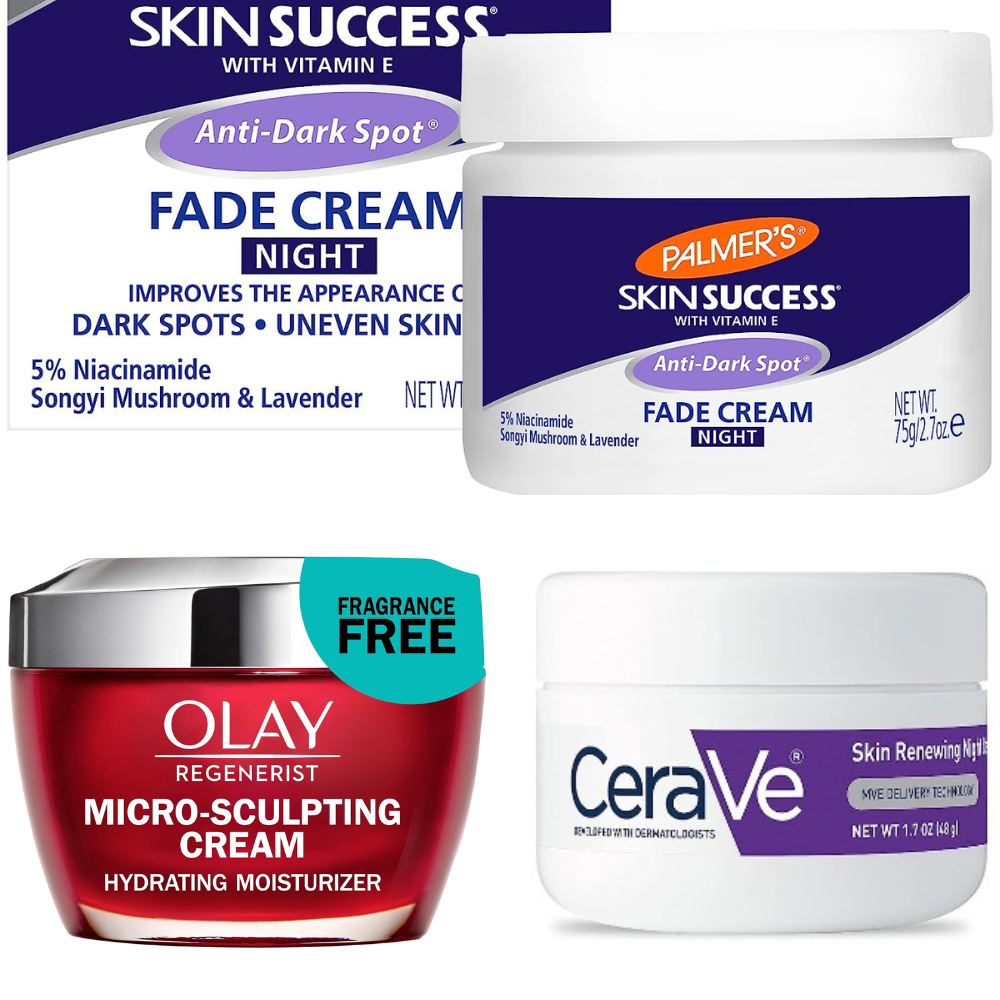Key Takeaways:
- Niacinamide, a form of vitamin B, is generally safe but can have side effects.
- Chronic conditions like liver disease and kidney dysfunction may influence niacinamide's safety profile.
- Understanding the balance between niacinamide's benefits and potential risks is crucial for safe supplementation.
Niacinamide, also known as nicotinamide, is a form of vitamin B3 that has gained popularity for its role in maintaining healthy cells and treating a variety of skin conditions. While it's celebrated for its benefits, including improving facial skin appearance and managing inflammatory acne, it's important to be aware of the potential niacinamide side effects. This article delves into the side effects associated with niacinamide, providing a detailed understanding for those considering its use.
What is Niacinamide?
Niacinamide is a B complex vitamin that plays a vital role in energy metabolism and cell health. It's found in many dietary supplements and skin care products, touted for its ability to treat niacin deficiency, support healthy skin, and even slow skin aging. As a supplement form, niacinamide is used to decrease phosphate levels in patients with chronic kidney disease and has been studied for its potential to prevent insulin-dependent diabetes.
The Benefits of Niacinamide
Before diving into the side effects, it's worth noting the positive impacts of niacinamide. It's known for its ability to maintain a healthy skin barrier, which is essential for keeping skin hydrated and protected from environmental stressors. Niacinamide serums and creams are popular in skin care routines for their ability to improve the appearance of aging skin, reduce skin redness, and manage conditions like atopic dry skin and moderate inflammatory acne vulgaris.
Recognizing Niacinamide Side Effects
While niacinamide is generally considered safe, it's not without its side effects. Some individuals may experience mild irritation, such as skin redness or itching, particularly those with sensitive skin. In rare cases, more severe reactions can occur, especially when taken in high doses or combination with a multiple-drug regimen.
The Impact of High Doses
High doses of niacinamide can lead to more pronounced side effects. These may include symptoms like nausea, vomiting, and signs of liver damage. It's crucial to adhere to recommended dosages and consult with a healthcare provider before starting any new supplement, especially if you have pre-existing health conditions like liver disease or gallbladder disease.
Niacinamide and Chronic Conditions
People with chronic conditions such as liver disease or kidney dysfunction need to be particularly cautious. Niacinamide therapy can exacerbate these conditions, and its use should be closely monitored by a healthcare professional. For instance, niacinamide can affect glucose metabolism, which is a consideration for those with diabetes or at high risk for cardiovascular events.
Skin Care and Niacinamide

In the realm of skin care, niacinamide is often celebrated for its ability to keep skin healthy and manage various skin diseases. However, even topical niacinamide can cause side effects like skin flushing and irritation. It's important to perform a patch test before incorporating new products into your skin care routine, especially if you have sensitive skin.
Niacinamide's Role in Cancer Prevention and Treatment
Niacinamide, a form of vitamin B3 or nicotinic acid, has been studied for its potential role in cancer prevention and treatment. Research published in journals such as Eur J Cancer suggests that niacinamide may help maintain healthy cells and could be particularly beneficial in the fight against certain types of cancer. For instance, studies have indicated that nicotinamide improves insulin secretion and residual beta cell function, which are factors that could potentially influence the development of non-melanoma skin cancers and high-risk bladder cancer. The implications of these findings are significant, as they offer a glimpse into how a simple B vitamin could contribute to complex cancer treatment regimens.
In addition to its systemic effects, topical nicotinamide compared to other treatments has shown promise in the realm of skin health, particularly in the context of acne treatment and possibly in reducing the risk of certain skin cancers. The mechanism behind this could involve the induction of nitric oxide synthase, which plays a role in the regulation of human tumor blood flow. While more research is needed to fully understand the relationship between niacinamide and cancer, these preliminary findings are encouraging for those seeking novel prescription dietary supplements and alternative therapies to complement traditional cancer treatments.
Niacinamide's Potential in Cancer Risk Reduction
Niacinamide, a form of vitamin B3, has been gaining attention for its potential role in cancer prevention, particularly about non-melanoma skin cancers and high-risk bladder cancer. Studies suggest that niacinamide supplements may help protect skin cells from UV damage, which is a significant risk factor for non-melanoma skin cancers. By bolstering the skin's defense mechanisms, niacinamide could be a valuable ally in the fight against these common forms of cancer.
In the realm of bladder cancer, research indicates that niacinamide might play a role in reducing the risk of high-risk bladder cancer. This is particularly promising given the aggressive nature of this disease. While the exact mechanisms are still being explored, the potential of niacinamide to act as a chemopreventive agent offers hope for those seeking to mitigate their cancer risk. Ongoing clinical trials continue to investigate the efficacy of niacinamide in this context, aiming to provide clearer insights into its preventive capabilities.
Niacinamide Supplement: A Versatile Ally Against Various Cancers
Niacinamide, a form of vitamin B3, has been gaining attention not just for its skin benefits but also for its potential in cancer prevention. Studies have suggested that niacinamide supplements could play a role in reducing the risk of certain non-melanoma skin cancers. Individuals with a history of skin cancer have shown a decrease in new incidences when niacinamide is included in their daily regimen. This promising evidence points to niacinamide's protective effects against the damage caused by ultraviolet radiation, which is a significant factor in skin cancer development.
Moreover, research is exploring niacinamide's efficacy in other types of cancer, such as high-risk bladder cancer. While the research is still in its early stages, there is optimism about niacinamide's ability to inhibit cancer cell growth and improve the body's immune response. By modulating pathways involved in cell differentiation and proliferation, niacinamide supplements could potentially become a part of comprehensive cancer care, offering a beacon of hope for those at increased risk.
Niacinamide's Protective Effects Against Non-Melanoma Skin Cancers
Niacinamide, a form of vitamin B3, has been gaining attention for its protective role against non-melanoma skin cancers. Studies suggest that niacinamide can bolster skin defenses, potentially reducing the incidence of these cancers in high-risk individuals. By enhancing DNA repair and strengthening the skin's immune response, niacinamide offers a layer of protection against the harmful effects of UV radiation. This is particularly significant for those with a history of skin cancer or who are exposed to intense sunlight regularly.
Moreover, the use of niacinamide as a preventative measure is supported by clinical research. A randomized controlled trial published in the New England Journal of Medicine demonstrated that a daily dose of niacinamide significantly reduced the rate of new non-melanoma skin cancers in high-risk patients. This finding underscores the potential of niacinamide as an adjunctive treatment in skin cancer prevention strategies, offering hope to those seeking non-invasive options to safeguard their skin health.
Niacinamide's Efficacy in Preventing Insulin-Dependent Diabetes
The potential of niacinamide to prevent insulin-dependent diabetes has been a subject of interest in the medical community. Studies suggest that niacinamide when administered at the right stage, might help preserve beta-cell function in individuals who are at high risk of developing Type 1 diabetes. This preservation is crucial as it could delay or even prevent the onset of the condition. By protecting these cells, which are responsible for insulin production, niacinamide could play a pivotal role in managing the autoimmune destruction typically associated with this form of diabetes.
Moreover, the implications of such an intervention are profound, considering the lifelong dependency on insulin injections that characterize insulin-dependent diabetes. Early intervention with niacinamide could potentially reduce the burden on patients and healthcare systems alike. While the exact mechanisms are still being unraveled, the antioxidant properties of niacinamide are believed to mitigate oxidative stress, which is a contributing factor to the destruction of pancreatic beta cells. This promising avenue underscores the importance of further research to establish effective dosing and timing strategies for niacinamide supplementation in high-risk individuals.
Niacinamide's Preventative Role in Clinical Disease
Niacinamide's role in preventing clinical disease extends beyond its potential in diabetes management. Its protective effects have been observed in the context of non-melanoma skin cancers, where it has been shown to reduce the rate of new cancerous lesions in high-risk individuals. This is particularly significant given the increasing global incidence of skin cancers, which poses a substantial public health challenge. Niacinamide's ability to bolster skin cell immunity and repair DNA damage caused by ultraviolet radiation contributes to its cancer-preventive properties.
In the realm of high-risk bladder cancer, niacinamide has also been identified as a compound of interest. Bladder cancer patients often face a high recurrence rate, and niacinamide's role in DNA repair mechanisms presents a potential therapeutic avenue to prevent the recurrence and progression of the disease. While the research is still in its nascent stages, the prospect of niacinamide as a supplementary treatment in high-risk bladder cancer cases is an exciting development. It exemplifies the broader potential of niacinamide in the prevention of clinical diseases where oxidative stress and impaired cellular mechanisms are implicated.
Niacinamide's Role in Bladder Cancer and Diabetes Management
Niacinamide has also been associated with positive outcomes in managing high-risk bladder cancer. Emerging research indicates that niacinamide may inhibit the progression of bladder cancer cells, providing a novel approach to treatment. While the exact mechanisms are still being unraveled, the potential for niacinamide to complement existing therapies is an exciting development. Patients with bladder cancer could benefit from the anti-inflammatory and immune-modulating properties of niacinamide, which might help in controlling the disease's advancement.
In the realm of diabetes, particularly in preventing insulin-dependent diabetes, niacinamide has shown promise. It is believed to preserve beta-cell function in the pancreas, which is crucial for insulin production. A study published in the Lancet revealed that high doses of niacinamide delayed the onset of insulin-dependent diabetes in some individuals. This preventative effect could be a significant breakthrough in managing and potentially preventing clinical disease in those at risk of developing type 1 diabetes. As research continues, niacinamide may become a key player in the fight against this chronic condition.
Niacinamide's Role in Preventing Diabetes and Clinical Disease
The versatility of niacinamide extends beyond cancer prevention. Emerging studies indicate that niacinamide might help prevent insulin-dependent diabetes, particularly in individuals with a high risk of developing this condition. By preserving the function of insulin-producing cells in the pancreas, niacinamide supplements could delay or even prevent the onset of clinical diabetes. This is a significant breakthrough, as it offers a potential non-invasive approach to managing a condition that affects millions worldwide.
Furthermore, the preventive properties of niacinamide may also extend to other clinical diseases. For instance, its anti-inflammatory and immunomodulatory effects are being researched for their ability to prevent clinical disease progression in autoimmune disorders. While more extensive clinical trials are necessary to confirm these benefits, the current findings provide a compelling case for considering niacinamide as part of a preventive health strategy. Its potential to avert the onset of clinical disease could have far-reaching implications for public health.
Niacinamide's Role in Chronic Disease Prevention
Emerging evidence suggests that niacinamide could be instrumental in preventing insulin-dependent diabetes. The supplement has been studied for its effects on beta-cell function in the pancreas, which is crucial for insulin production. By preserving these cells, niacinamide may help prevent the onset of insulin-dependent diabetes, offering a new avenue for managing this chronic condition before it progresses to a clinical disease.
Furthermore, research into laryngeal cancer predicts that niacinamide may have a protective effect against this type of cancer as well. While the research is still in its early stages, the possibility that niacinamide could help prevent laryngeal cancer is an exciting development. As scientists continue to explore the full range of niacinamide's preventive properties, the supplement is poised to become an important tool in the fight against various chronic diseases, potentially preventing clinical disease onset and improving patient outcomes.
Niacinamide's Influence on Metabolic and Cardiovascular Health
The benefits of niacinamide extend beyond its potential in cancer prevention; it also has a significant impact on metabolic and cardiovascular health. Oral niacinamide has been shown to help regulate blood sugar levels, which is crucial for preventing insulin-dependent diabetes. This effect is attributed to the way nicotinamide improves insulin secretion, thereby helping to prevent clinical disease in individuals at risk. As a novel prescription dietary supplement, niacinamide could play a pivotal role in managing diabetes and supporting overall metabolic health.
Furthermore, niacinamide's influence on cardiovascular health is noteworthy. While niacin treatment is often associated with the management of cholesterol levels, niacinamide also has implications for blood pressure regulation. Studies have found that it can cause low blood pressure in some individuals, which is an important consideration for those with hypertension. Additionally, niacinamide's role in nitric oxide synthase induction may have a positive effect on blood vessels, contributing to improved cardiovascular function. As research continues, the potential for niacinamide supplements to support heart health and prevent related diseases becomes increasingly apparent.
Niacinamide and Drug Interactions
Niacinamide can interact with certain medications, potentially leading to increased side effects or reduced efficacy of the drugs. For example, niacinamide may slow blood clotting, which could be a concern for those on a multiple-drug regimen that includes blood thinners. Always discuss any new supplements with your healthcare provider to avoid unwanted interactions.
The Role of Niacinamide in Clinical Trials
Clinical trials have investigated niacinamide's effects on various conditions. For instance, a phase III randomized trial looked at oral nicotinamide's ability to prevent non-melanoma skin cancers in high-risk individuals. Another phase III randomized trial examined nicotinamide treatment for advanced bladder carcinoma. These studies help to understand the potential side effects and therapeutic benefits of niacinamide.
Niacinamide in Diet and Supplementation
Niacinamide is naturally present in foods like green vegetables, grains, and meat. When consumed as part of a balanced diet, it's unlikely to cause side effects. However, when taken as dietary supplements, the risk of experiencing niacinamide side effects increases, particularly if the dosage exceeds the recommended levels.
Managing Side Effects
If you experience side effects from taking niacinamide, it's important to stop using the product and consult a healthcare provider. They can help determine whether the side effects are due to niacinamide or another underlying condition and advise on the best course of action.
Niacinamide and Holistic Health
Incorporating niacinamide into a holistic approach to health can be beneficial, but it's important to consider the potential side effects. Balancing its use with other aspects of health, such as diet, exercise, and stress management, can help maximize its benefits while minimizing risks.


Can niacinamide cause skin irritation?
Yes, niacinamide can cause skin irritation, particularly in individuals with sensitive skin. It's recommended to perform a patch test before using new skin care products containing niacinamide.
Is niacinamide safe for people with liver disease?
People with liver disease should use niacinamide with caution and under medical supervision, as it can potentially cause liver damage, especially at high doses.
Can niacinamide be taken with other medications?
Niacinamide can interact with certain medications, so it's important to consult with a healthcare provider before combining it with other drugs, particularly if you're on a multiple-drug regimen.

Niacinamide, a versatile form of vitamin B3, offers numerous health and skin care benefits. However, it's not without potential side effects, which can range from mild skin irritation to more serious conditions like liver damage, especially at high doses or in individuals with chronic health issues. It's essential to use niacinamide responsibly, adhering to recommended dosages and consulting with healthcare professionals to ensure its safe use.













